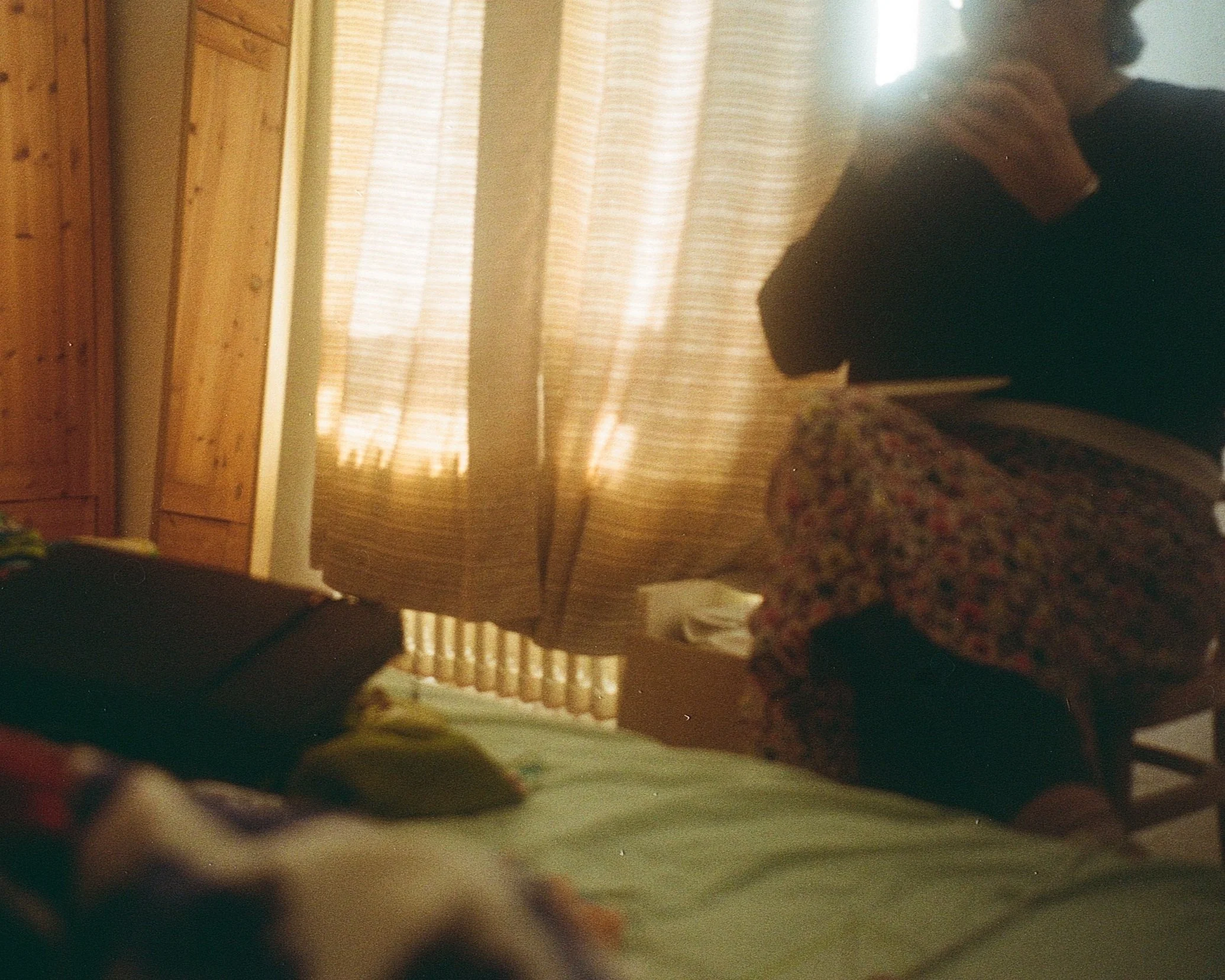Sick Notes: Anne Boyer with screenings by Jamila Prowse, Lou Lou Sainsbury + Kari Rosenfeld
A programme dedicated to Pulitzer Prize-winning author and poet Anne Boyer and her blistering memoir, The Undying: A Meditation on Modern Illness (2019). In her keynote lecture, Boyer will discuss the book, which reflects on her experience of breast cancer while deconstructing the gendered, capitalistic regimes that shape cancer treatment and patient experience, bridging a poetics of pain with steely critique. The talk will be followed by a Q&A.
Programme
‘The Undying’ Out Loud Reading Group: 4–6pm, organised by Mariana Lemos and Katrin Lock
Screenings: 6.30–7pm
Anne Boyer Keynote: 7.15–8.30pm
Reading
Together we will read from Anne Boyer’s The Undying: A Meditation on Modern Illness (2019). There is no need to read in advance as we will do so together, out loud, one person at a time, during the meeting. The reading will be circulated to attendees beforehand.
Artist Screenings
Jamila Prowse’s new video work Flare: the muted outline of a body in bed as a camera flash overtakes the scene (2025) Prowse’s film reflects on life lived from bed during periods of illness, combining diaristic narration, poetic audio description, and creative captioning. The work shares intimate moments of disability flare-up, challenging norms of visibility, productivity, and respectability. Prowse’s approach draws from Black feminist and crip scholarship to explore the entanglements of loss, care, and radical hope.
Lou Lou Sainsbury and Kari Rosenfeld’s film The Law of Desire is Fascist (2022) offers a sonic and bodily descent into a world of pharmacological disobedience and spiritual subversion. Part lament, part confession, the work complicates gender, desire, and religious narrative through a speculative lens, narrated by poet Jo Mariner. Sainsbury’s practice traces trans-feminized and queer lives through collaborative study and storytelling, attending to histories of resistance, medicalisation, and survival. Rosenfeld’s work engages with questions of ontology, affect, and belief, rooted in religious and mythological narratives to explore attachment and collective intimacy.
Register for Tickets: Select ‘Reading Session’ and ‘Screening & ‘Keynote’ if you would like to attend both.
Bios
Anne Boyer (b. 1973, Topeka, Kansas) is a poet and essayist based in Scotland. Her writing explores illness, care, labour, and the politics of literature, often drawing from her lived experience of disability and precarity. Working across poetry, essay, and translation, Boyer’s work is attentive to the entanglements of vulnerability, resistance, and survival. Following her diagnosis with an aggressive form of breast cancer in 2014, Boyer began writing on the politics of care, medicine, and mortality. Her Pulitzer Prize-winning book The Undying (2019) reflects on the experience of illness under late capitalism, combining memoir, theory, and poetic inquiry. She is also the author of Garments Against Women (2015), Handbook of Disappointed Fate (2018), My Common Heart (2011), and The Romance of Happy Workers (2006), among others. She is currently a professor at the University of St Andrews.
Jamila Prowse (b. 1992, London) is an artist and writer based in the UK. Her practice is rooted in curiosity and a desire to understand herself through making, informed by her lived experience of disability, mixed-race ancestry, and the loss of her father at a young age. Working across moving image, painting, photography, textiles, and performance, her research-led approach draws on Black feminist and crip scholarship, and is shaped by her ongoing involvement in contemporary disabled artistic communities.
Lou Lou Sainsbury (b. 1994, London) is an artist based between Rotterdam, Netherlands, and London, UK. Working across moving image, live performance, poetry, drawing, sculpture, and textiles, her work explores histories of resistance, transformation, and entanglement. Collaboration is central to her practice, incorporating rituals, collective study, songwriting, domestic interventions, and makeshift mutations as part of her research. Sainsbury’s work connects spirituality, medicalisation, colonialism, and technology, and seeks to excavate historical and imagined pasts of trans-feminised and queer life within broken human and more-than-human worlds.
Kari Rosenfeld (b. Houston, TX) is an interdisciplinary artist and writer based in Berlin, Germany.
Access
– Live captioning will be provided for Anne Boyer’s talk.
– All films include subtitles as part of the work’s integrated access design.
– Please note that the Feminist Duration Reading Group (FDRG) session does not have formal access support in place.
– The CCA galleries are wheelchair accessible.
We are keen to support visitors with any specific requirements regarding their attendance. If you would like to request assistance or discuss access, contact the CCA office; goldsmithscca@gold.ac.uk
Sick Notes
‘Sick Notes’ is an ongoing event series, curated by Natasha Hoare and Mariana Lemos, which centres on ill health as a category of experience that provokes diverse linguistic and visual forms. It explores these as critical tools for access, facilitating the translation of liminal and non-normative bodily and mental states. It platforms art works and literary projects as vital in forming the basis for collectivity and activism, challenging the structural conditions that govern illness.
Image Credit
Jamila Prowse, Flare: the muted outline of a body in bed as a camera flash overtakes the scene, 2025. Commissioned by Spread the Word
Image description
We find ourselves in another room. Or is it the same one? Hard to tell. The curtains remain purposefully sealed. Whereas before, the light couldn’t contend with the overwhelming darkness, here the sun is fierce, fighting through to illuminate the whole interior. Taken from bed, the edge of a mattress is busy with blankets and objects. A laptop screen is playing a film or TV series, though it’s unclear what. Reflected in a vertical mirror is a wooden wardrobe. A bleary bedside figure sits in a chair next to the bed, wearing a bold, floral skirt and black jumper. Held in both hands, they place a sandwich into their waiting mouth, and in the process hide their face.
Supported by Department of Art, Goldsmiths, University of London



